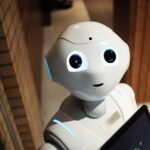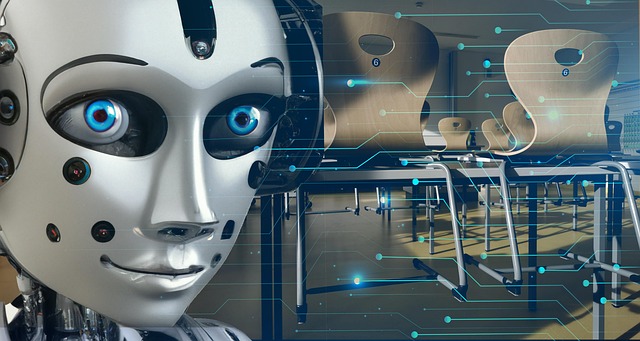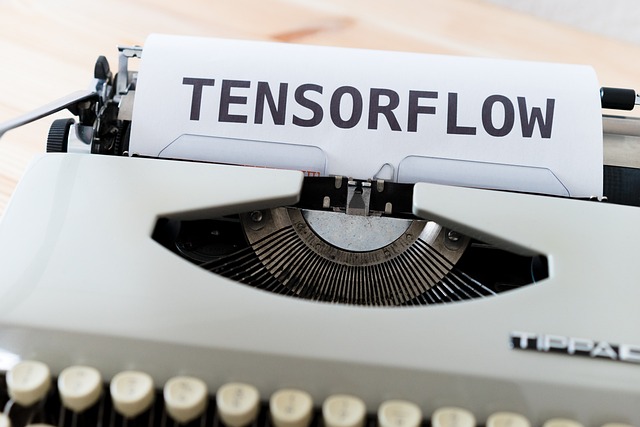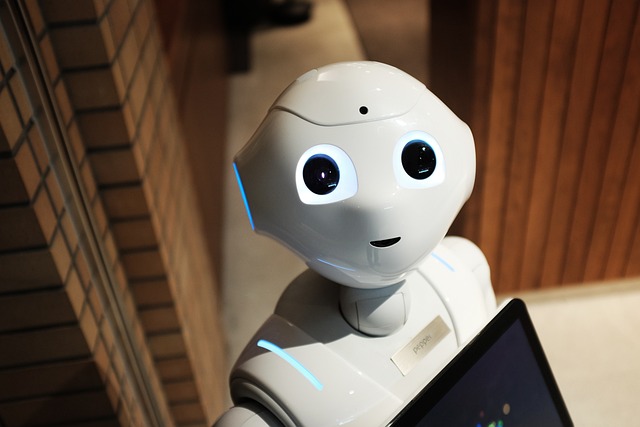# Reimagining the Future: How AI Technology is Revolutionizing Our Lives and Work Environments
The advent of artificial intelligence (AI) has marked a transformative era in human history, reshaping the way we interact with technology and each other. As AI continues to evolve, it permeates various aspects of our lives, from the way we communicate to how we work. This article explores the profound impact of AI technology on our daily routines and professional environments, highlighting its potential to enhance efficiency, creativity, and decision-making.
## Transforming Daily Life with AI
In the realm of personal life, AI is becoming an integral part of everyday experiences. Smart home devices, powered by AI algorithms, allow individuals to manage their environments with unprecedented ease. For instance, voice-activated assistants like Amazon’s Alexa and Google Assistant enable users to control lighting, temperature, and entertainment systems through simple voice commands. This convenience not only enhances comfort but also promotes energy efficiency, as these systems can learn user preferences and adjust settings accordingly.
Moreover, AI-driven applications are revolutionizing the way we consume information. News aggregators and personalized content platforms leverage machine learning algorithms to curate articles, videos, and podcasts tailored to individual interests. As a result, users are no longer overwhelmed by the sheer volume of content available online; instead, they receive a streamlined flow of information that aligns with their preferences. This shift not only enriches the user experience but also fosters a more informed society.
Another significant aspect of AI integration into daily life is its role in healthcare. AI technologies are enhancing diagnostic accuracy and treatment options. Machine learning algorithms analyze vast datasets of medical records, helping healthcare professionals identify patterns and predict patient outcomes more effectively. Consequently, patients benefit from earlier diagnoses and personalized treatment plans, ultimately leading to improved health outcomes. The marriage of AI and healthcare exemplifies how technology can enhance human well-being, making it a pivotal area of development.
## Revolutionizing the Workplace
Transitioning to the professional realm, the impact of AI on work environments is equally profound. Automation is at the forefront of this transformation, as AI systems take over repetitive tasks, allowing employees to focus on higher-value activities. For instance, chatbots are increasingly used in customer service settings to handle common inquiries, freeing human agents to tackle more complex issues that require emotional intelligence and critical thinking. This shift not only boosts productivity but also enhances job satisfaction, as employees can engage in more meaningful work.
Collaboration tools powered by AI are also changing the dynamics of teamwork. Platforms like Microsoft Teams and Slack integrate AI features that streamline communication and project management. By analyzing team interactions, these tools can suggest optimal meeting times, prioritize tasks, and even provide insights into team performance. As a result, organizations can foster a more collaborative and efficient work culture, enabling teams to achieve their goals more effectively.
Furthermore, AI is playing a pivotal role in recruitment and talent management. Traditional hiring processes often involve significant biases and inefficiencies. However, AI-driven recruitment platforms can analyze candidate profiles, assess qualifications, and predict cultural fit with greater objectivity. This data-driven approach not only enhances the quality of hires but also promotes diversity within organizations. By minimizing bias in recruitment, companies can build more inclusive teams that reflect a broader range of perspectives and experiences.
## Enhancing Creativity and Innovation
While AI is often associated with efficiency and productivity, its influence extends to creativity and innovation as well. Artists, musicians, and writers are increasingly leveraging AI tools to explore new creative avenues. For example, AI-generated art and music are gaining popularity, pushing the boundaries of traditional artistic expression. These tools can assist creators by providing inspiration, generating ideas, or even collaborating on projects. Rather than replacing human creativity, AI serves as a catalyst, enabling artists to experiment and innovate in ways previously unimaginable.
In the realm of product development, AI is driving innovation by analyzing market trends and consumer preferences. Companies can leverage predictive analytics to anticipate customer needs, allowing them to develop products that resonate with their target audience. This data-driven approach not only enhances product relevance but also reduces the risk of failure in the market. As organizations embrace AI in their innovation processes, they can stay ahead of the competition and adapt to changing consumer demands more effectively.
Moreover, the integration of AI into research and development is accelerating scientific advancements. AI algorithms can sift through vast amounts of data, identifying patterns and correlations that humans might overlook. In fields such as drug discovery and climate modeling, AI is proving to be an invaluable tool, enabling researchers to make breakthroughs more rapidly. This acceleration of knowledge generation has the potential to address some of the world’s most pressing challenges, from healthcare to environmental sustainability.
## Conclusion: A Future Shaped by AI
As we stand on the brink of a new era defined by artificial intelligence, it is clear that the technology is reshaping our lives and work environments in profound ways. From enhancing daily conveniences to revolutionizing workplace dynamics and fostering creativity, AI is a powerful force for change. While challenges such as ethical considerations and job displacement remain, the potential benefits of AI are immense.
Embracing AI technology allows us to reimagine the future, where humans and machines collaborate to achieve greater heights. By harnessing the capabilities of AI, we can create a world that is not only more efficient but also more innovative and inclusive. As we navigate this transformative landscape, it is essential to approach AI with a mindset of curiosity and responsibility, ensuring that we leverage its potential for the betterment of society as a whole. The future is bright, and with AI as a partner, we are poised to embark on an exciting journey of discovery and growth.











